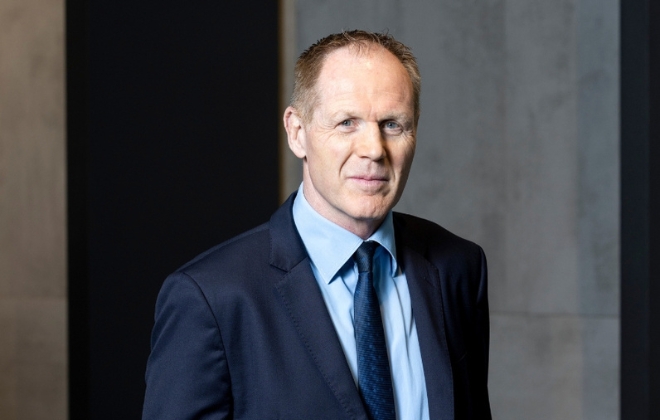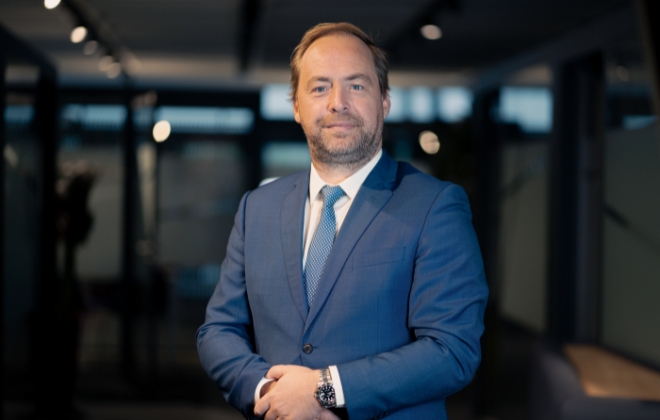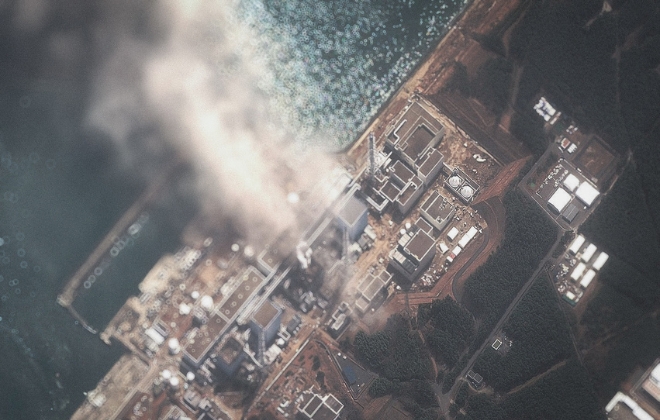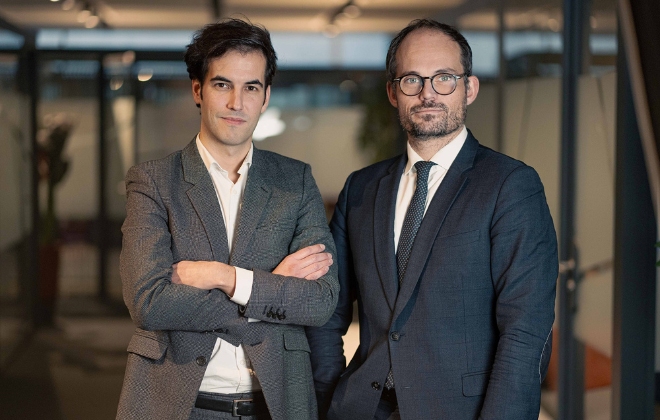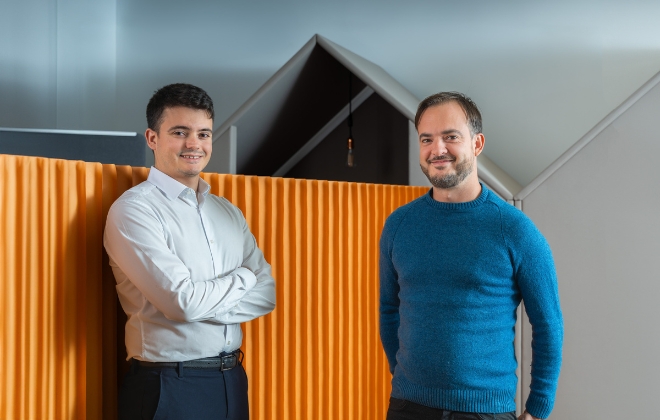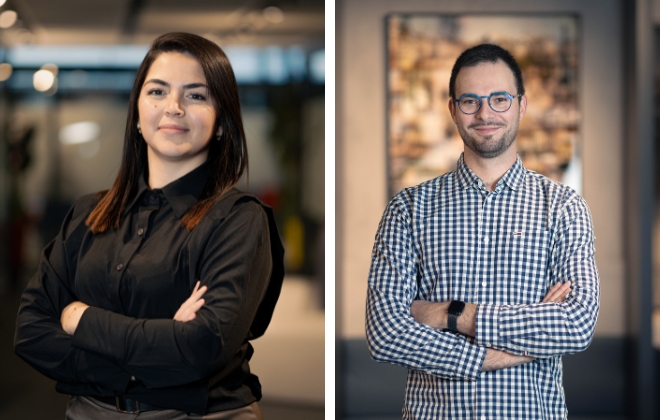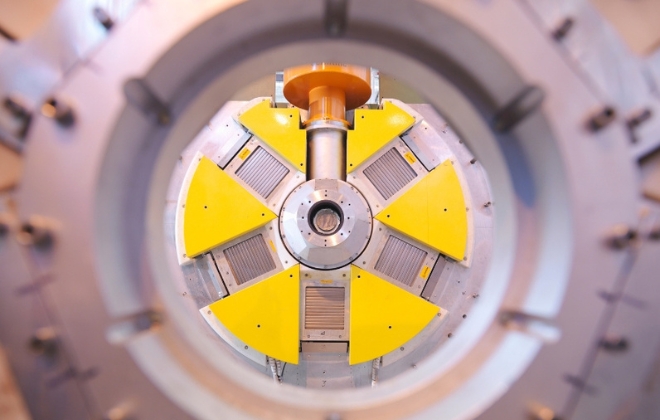Engineers on demand
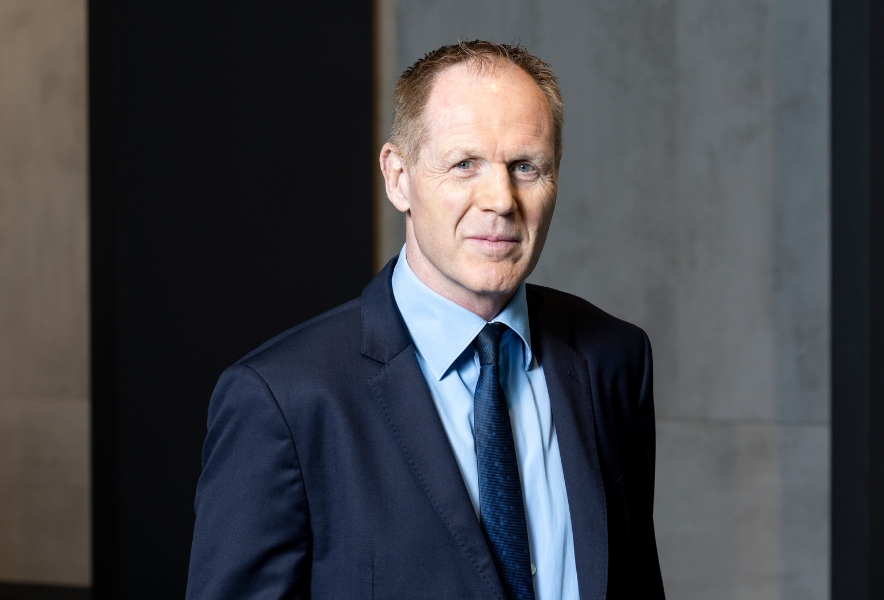

Interview with Stéphane Ougier
Executive Director – ALTEN
“ALTEN operates internationally across the entire nuclear value chain, supporting the transition to decarbonization and the achievement of energy independence.”
Editorial – As a partner to leading names in the nuclear industry, ALTEN holds a privileged position as an observer of market dynamics, and as a provider of cutting-edge technical expertise to support the design, maintenance, and safety of nuclear facilities.
What is ALTEN’s position on nuclear power?
S.O. — ALTEN is committed to furthering the transition to carbon neutrality. In the face of climate change and geopolitical risks, nuclear energy offers clear advantages: in addition to being a sustainable, low-carbon solution, it guarantees energy independence. Nuclear power is abundant, providing a reliable source of energy to meet the growing demand for electricity. It also offers invaluable flexibility in the energy mix, guaranteeing a stable and regular power supply alongside other energy sources, notably renewable energies.
How have the current energy challenges impacted the nuclear industry?
S.O. — The nuclear market is experiencing a period of transition, with major challenges. The year 2022 was marked by concerns about gas supplies in Europe, a drop in French nuclear production attributed to corrosion problems, and drought conditions that resulted in a significant decline in hydroelectric production, which reached its lowest level since 1976. This “triple crisis” led to a resurgence in the demand for nuclear power after a period of stagnation that had lasted some 15-20 years. The resurgence – particularly in Europe and Asia – was framed by a focus on diversifying energy sources, reinforcing energy autonomy and reducing greenhouse gas emissions. In the overarching context of promoting carbon neutrality, nuclear energy is an important part of the mix.
What are the global trends in nuclear power?
S.O. — Current trends in the nuclear market reflect a growing demand worldwide: over the coming decades, the global market in nuclear energy is set to grow by an average of 4% annually. Many countries In Europe – including France, Poland and Finland – have announced plans to build new nuclear power plants. Germany, on the other hand, shut down its last three nuclear plants last April. The United States, the second most nuclear-dependent country in the world after France, is beginning to modernize its nuclear fleet. In Asia, China, India and Japan are leaders in the development of SMRs (small modular reactors), which are easier and cheaper to build than traditional reactors. These growth challenges call for optimizing engineering processes to speed up design and standardization, while promoting digitalization to respond to the urgent need for decarbonization.
How do you see the coming years for the industry?
S.O. — In a context of increasingly stringent regulations paired with growing innovation and spurred by energy transition, nuclear power’s place in the world is complex. The industry faces considerable challenges: guaranteeing safety, managing radioactive waste and extending the lifespan of existing plants, among others. To meet these challenges, the nuclear industry must renew itself; in this respect, standardization and digitalization are of primary importance, as we have noted. The recent period of stagnation has affected the entire industry. Experts are in short supply and in many cases their skills have not been updated for years. In France alone, the planned construction of the six new EPR2 reactors will require the recruitment of at least 100,000 technicians and engineers, according to industrialists’ estimates. Of course, this will happen over several years.
What will tomorrow’s nuclear power look like and how is ALTEN supporting this?
S.O. — Nuclear power currently accounts for over 70% of France’s electricity production. It is the country’s main source of electricity, largely for reasons linked to historical energy independence. As a decarbonized source of energy, it has an undeniable advantage in the era of energy transition.
It’s important to remember, nonetheless, that nuclear power will be just part of the global energy mix. In a global approach, nuclear will only be one element of the formula for responding to the challenges of decarbonized energy. Nuclear energy also faces numerous obstacles that span the geographic to the political. We are responding to local challenges by reinventing ourselves and creating new reactors, such as the SMR for example, to better contribute to decarbonization in the context of the various constraints around the world. Hybridization (coupling nuclear power with hydrogen or wind power for example) also has great potential.
It is crucial to examine all these questions when considering the role nuclear power will play in achieving our climate change objectives. Extending the operating life of existing plants offers an important means of reducing waste, making the most of materials already in place. At the same time, the lessons we have learned from Fukushima and other accidents, and the potential threats we can envision, are helping us to renew our existing plants and to design new and better ones.
What will tomorrow’s nuclear power look like? This is where ALTEN comes in. ALTEN operates internationally across the entire nuclear value chain. We have strong links with the nuclear industry, in France and worldwide, and provide cutting-edge technical expertise to accelerate the design phase, optimize maintenance, and promote digitalization.
In what aspects of the nuclear industry is ALTEN involved?
S.O. — ALTEN works with key players in the sector on all major projects across the entire nuclear value chain, positioning itself as an end-to-end service provider – from research and development to industrial methods, supply chain management and information technology. We participate in large-scale strategic projects with important engineering components in the fields of new-build, operations and maintenance, commissioning and start-up, decommissioning and waste management. In terms of nuclear quality and safety, ALTEN meets the highest standards, as demonstrated by its recent ISO 19443 certification. To support the expansion of the sector, ALTEN already has 1,000 consultants and nuclear specialists and is helping to train the experts of tomorrow. In addition, the Group has drawn up an ambitious recruitment plan aimed at further strengthening our nuclear expertise over the coming years. Today, ALTEN’s strengths enable us to be a major player in the nuclear investment program.
To find out more
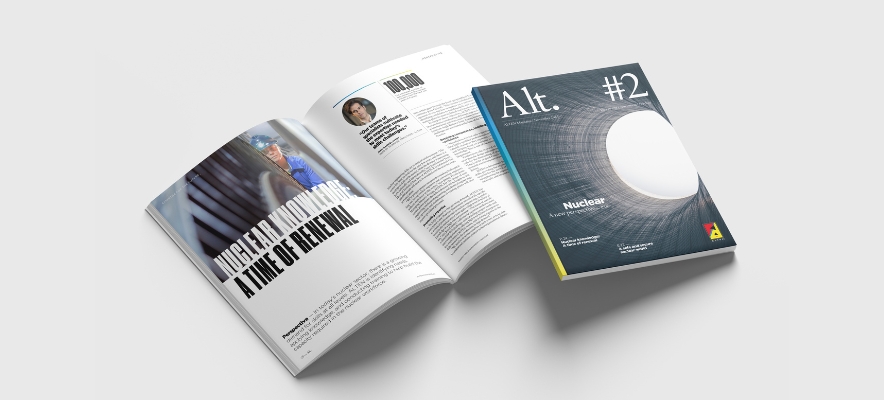
Magazine Alt. #2
The world is actively exploring responsible nuclear power as an answer to pressing energy and environmental needs. Global awareness of the promise of nuclear power has grown in the light of climate change and increasing energy demands. The sector’s potential for innovation makes it a dynamic and vital field for the global workforce.
Find out more on how ALTEN, as a partner to leading names in the nuclear industry, holds a privileged position as an observer of market dynamics, and as a provider of cutting-edge technical expertise to support the design, maintenance, and safety of nuclear facilities.



